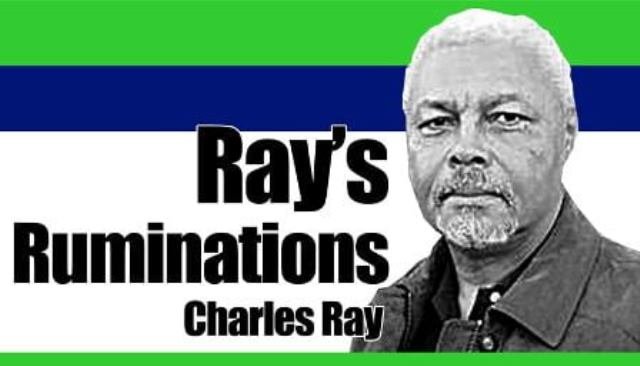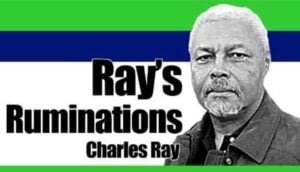
At some point in our lives we all encounter bias. Sometimes it’s overt, but more often than not it’s unconscious on the part of the offender. Of the two types, the unconscious bias is the most difficult for me to deal with, in part because the person doing it is unaware of it, but mostly because of the unmitigated arrogance of most people who do it. They would be gravely offended if you called them on it and would vehemently deny that they are being biased, and unlike the overt bigot who does it, admits it, and feels no remorse for it, would act as if you’ve victimized them for even suggesting that they had discriminated against you.
This is not to say that conscious, deliberate bias isn’t arrogant as well, but somehow, those who do it without being aware get under my skin much worse than the outright bigot. I’ll give two examples to illustrate what I mean.
Once, before I retired from government service, I commuted to work by subway every day. One day, on my way home, a lady on the subway engaged me in conversation. The conversation was innocuous, and actually rather pleasant, until she asked me what church I went to. The question had no preamble and was unrelated to what we’d been talking about, so I had to pause before responding.
I then informed her that I was Buddhist and only occasionally went to a Buddhist temple not far from my home, mostly for certain Buddhist holidays or festivals. She looked at me with a serious expression and said, “So, you haven’t been saved yet.” I was floored. Such an arrogant expression of religious bigotry and intolerance, and she thought it was a perfectly innocent and proper thing to say. I didn’t want to get into a debate, so I just shrugged and buried my head in my paper. But she wasn’t done. “You should come to my church,” she said. “We can save your soul.” I’d had enough. I looked at her and said, “It’s from people like you that I need saving.” She recoiled as if I’d struck her and looked hurt.
I felt bad, because I should have known better than to let her bait me—not that this was her intent. She clearly felt sincerely superior in her faith and was firm in her belief that I was a nonbeliever. The temperature in the subway car dropped precipitously until she got off two stops later, shooting me a sympathetic glance on her way out of the car.
The second example is from the year before the Covid lockdowns began. I’m helping a friend in Florida establish a boarding school, and he’d invited me to come down and accompany him on a visit to a potential financial supporter, a man who owns a chain of hotels.
The meeting started off well enough, but the man looked at me and out of the blue said, “You’re a Democrat, aren’t you?” I didn’t know what that had to do with the reason for our visit, and didn’t want to throw the talks off kilter, so I responded that I’d been in government for five decades and had never let my politics become involved with my work. That seemed to please him, so he began telling us how during the previous election he’d let all of his employees and executives who voted for his party have the day off and had even provided them transportation to the polling places, but those who voted for the ‘other’ party were not given time off.
I listened to him with as neutral expression as I could muster, but was tempted to inform him that he’d just confessed to what was possibly a criminal act. I kept my mouth shut, though, until the meeting concluded. We shook hands and my friend and I left. In the car back to the airport for my flight back to Washington, I mentioned this to my friend, who had been as shocked as me but, like me, had kept a straight face.
What really got to me about the whole incident, though, was that this otherwise very savvy businessman seemed unaware of the fact that he’d shown bias in a number of ways; first by profiling me and assuming my political leanings by my appearance, and then assuming that my friend and I would be impressed by his blatant partisanship and ability to use his wealth to game the system.
I wish I could say that these are isolated incidents, but they’re not. It happens every day somewhere to someone, and those who deny the existence of unconscious bias are the most arrogant—and ignorant—of all. – NWI




